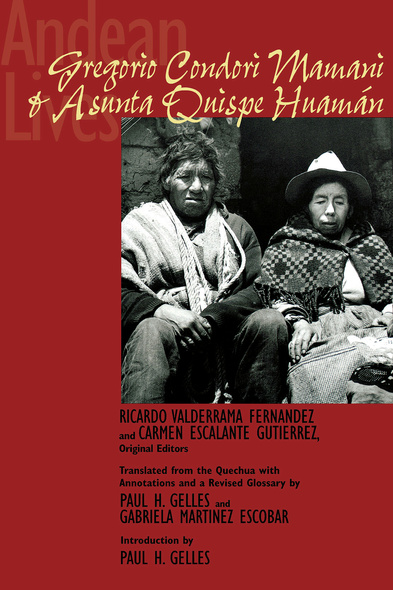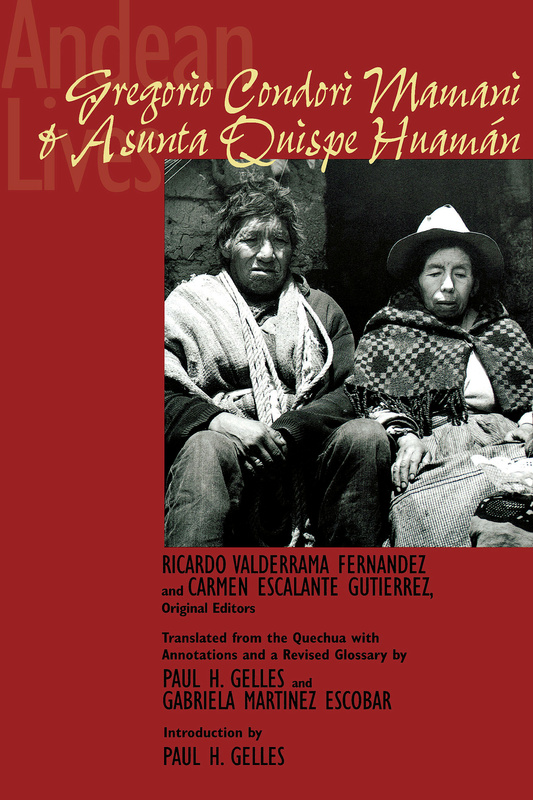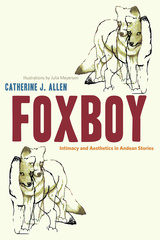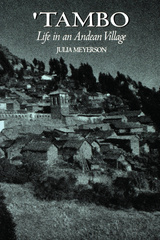Andean Lives
Gregorio Condori Mamani and Asunta Quispe Huamán
Gregorio Condori Mamani and Asunta Quispe Huamán were runakuna, a Quechua word that means "people" and refers to the millions of indigenous inhabitants neglected, reviled, and silenced by the dominant society in Peru and other Andean countries. For Gregorio and Asunta, however, that silence was broken when Peruvian anthropologists Ricardo Valderrama Fernández and Carmen Escalante Gutiérrez recorded their life stories. The resulting Spanish-Quechua narrative, published in the mid-1970s and since translated into many languages, has become a classic introduction to the lives and struggles of the "people" of the Andes.
Andean Lives is the first English translation of this important book. Working directly from the Quechua, Paul H. Gelles and Gabriela Martínez Escobar have produced an English version that will be easily accessible to general readers and students, while retaining the poetic intensity of the original Quechua. It brings to vivid life the words of Gregorio and Asunta, giving readers fascinating and sometimes troubling glimpses of life among Cuzco's urban poor, with reflections on rural village life, factory work, haciendas, indigenous religion, and marriage and family relationships.
[This book] represents a remarkable achievement and provides an accessible way for English-speaking students to hear the voices of an oppressed people. . . . This translation records the incredibly difficult lives of people like Gregorio and Asunta and thus constitutes a monument to their struggles. 'Through their accounts, Asunta and Gregorio speak for the oppressed, marginalized, and largely silenced cultural majority of the Andean countries.' Highly recommended for undergraduate libraries.
It brings to life the words, worldview, and historical consciousness of Gregorio and Asunta, who impart their accounts with stoicism, humor, and anger. Their descriptions of life in rural villages, isolated mines, semifuedal haciendas, and the houses of their powerful Misti masters in Cuzco are eloquent testimonies to the beauty and brutality of everyday life in the Andean highlands.
A highly readable book. The testimonies are vivid and intimate accounts of the brutality and exploitation experienced by landless Indians in the Andes. They also reflect the patience, humour, determination and defiance of these people. . . . As they tell their stories, we see the complexity of Andean culture, ethnic and gender relations and Peruvian history. Our understanding of the significance of Gregorio's and Asunta's testimonies are aided by the annotation and glossary provided by Gelles and Martínez. The annotation, which makes reference to many recent works, is particularly useful and would make this book a good starting point for teaching students about the Andes. This book will also be of use to those interested in the writing of ethnography and oral history.
Andean Lives is a superb book, highly recommended for readers of all levels of expertise and interest in South America. . . . [It] will serve as a wonderful introduction on the undergraduate level to Andean history and culture, and could also be used in a general Latin American Studies course. The book is completely appropriate for advanced courses such as history or anthropology graduate seminars focused on the modern Andean region, as well as literature or culture classes concerned with problems of translation, cross-cultural relations, or oral history. The work is also entirely suitable for general readers. The smooth and open quality of the translation and its ability to draw the reader into the world and life experiences of the speakers deserves the highest accolades.
One of the most beautiful and moving books that I have read on Andean life.
- Acknowledgments
- Introduction: Paul H. Gelles
- Preliminary Note to the Original Edition: Ricardo Valderrama Fernández and Carmen Escalante Gutiérrez
- Gregorio Condori Mamani
- 1. Beginnings
- 2. Aeroplanes and Other Beasts
- 3. Military Tricks
- 4. Earth Mother, Cropkeeper, and the Three Brothers
- 5. The Barracks
- 6. "The Army Isn't Christian"
- 7. Inkas and Spaniards
- 8. Stories from Jail
- 9. Rosa, Josefa, and Miracle Shrines
- 10. Life with Asunta
- 11. The Factory
- 12. We Strappers
- Asunta Quispe Huamán
- 13. Running Away from the Hacienda
- 14. Eusebio
- 15. "I Stopped Bearing That Cross"
- 16. Life with Gregorio
- Postscript: Paul H. Gelles and Gabriela Martinez Escobar
- Notes
- Glossary
- Bibliography
- Index







